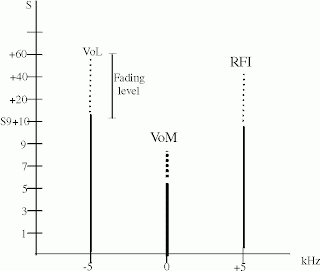Oversimplified usage listing of mp3 and wma compressions
Here is a oversimplified listing of the MP3 compressions :Notice that as the number in the left pane is higher , the higher the filter and thus higher fidelity audio. The higher numbers can offer the abilities or the lower numbers too.
Notice: The program used is Music match jukebox that offers the curves shown in http://zlgr.multiply.com/reviews/item/22
Notice: The program used is Music match jukebox that offers the curves shown in http://zlgr.multiply.com/reviews/item/22
kbps
|
approximate usage -
|
8 - 11 kbps
|
suitable for recording telephonic conversations , voice recording . narrowband AM radio
|
16
|
the above plus high fidelity speech, AM radio, low fidelity streaming radio
|
24- 32kbps
|
high quality speech , AM radio [medium and shortwaves ]
|
44-56
|
low fidelity FM radio
|
64
|
older fidelity
FM radio
|
96-128
|
CD
quality audio
|
192
|
CD quality -
|
256
|
'Store'
mode for CD quality
|
and for WMA - fior anyone interested , as tested with Musicmatch Jukebox . For me mostly
5-8-12
|
just
simple voice recording
|
16-22
|
high quality
speech recording , 22 seems as HIFI
|
44
|
good
for FM
|
48
|
CD audio
compromise , best for mass storage
|
64
|
CD
recording = 128 on MP3
|
96
|
'high quality'
CD recording =192 on MP3
|
And notice the following:
The above listing is still controversial and depends on the program and codecs you use. Older lame codec [used in goldwave ] does not offer the same audio quality
and several comments on windows media wma files:
- offering lower dynamic range : they can clip very low voices
- on hardware players :
- they can drain the double current .
- in most older MP3 players i tested , the WMA codec can offer better audio than its MP3 codec||
- the wma codec may introduce its own noise with 'cracks' in sudden audio changes or in loud points.


Comments
Post a Comment